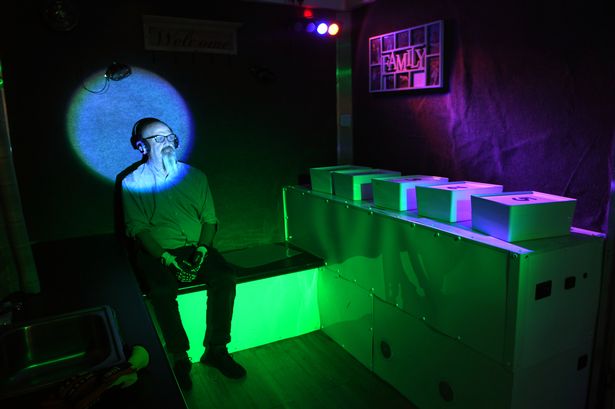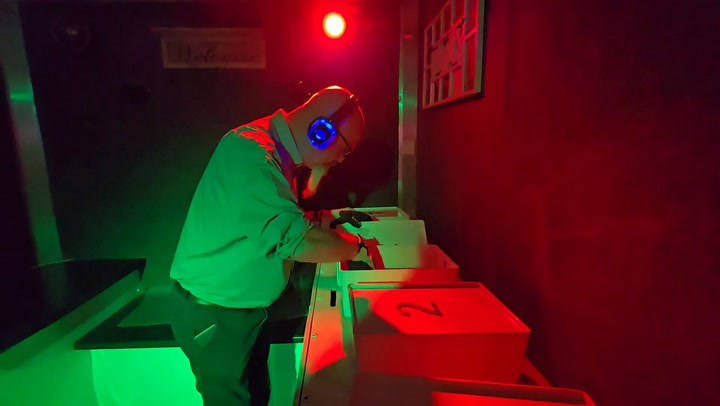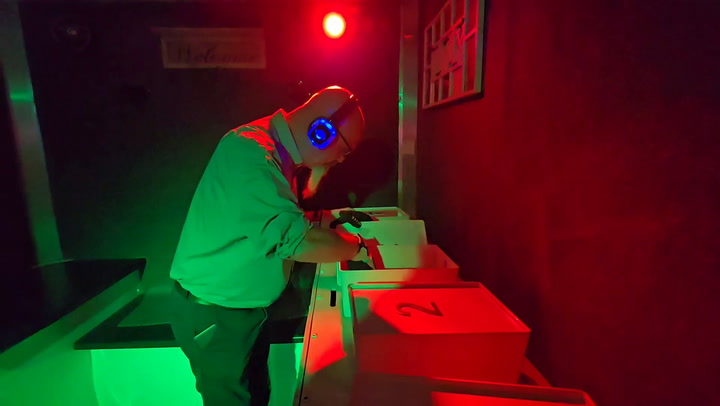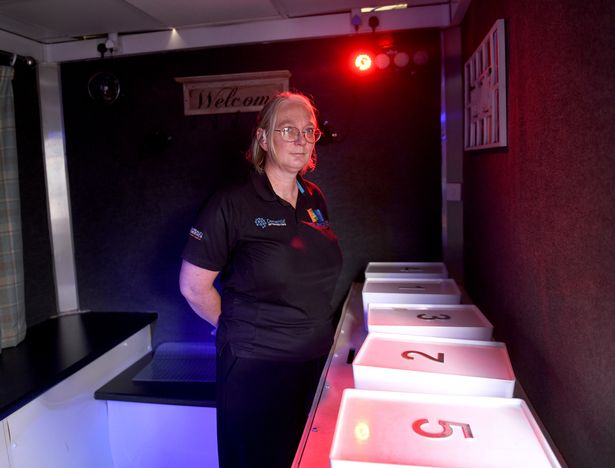
The Autism Reality Experience – ARE – bus is designed to build empathy and improve services

Autism Reality Experience Visits Isaac Robinson Court
A Hull care home was visited by an unusual bus this week. Isaac Robinson Court, in Arcon Drive, Anlaby Road, hosted the Autism Reality Experience (ARE) bus.
The ARE bus gives a powerful, hands-on simulation of the sensory challenges faced by people on the autism spectrum, from overwhelming sounds and flashing lights to tactile overload. It is designed to build empathy and improve the way services support individuals and families living with autism.
Representatives from Hull Social Services and Hull and East Yorkshire Hospitals NHS Trust attended the event, during which Isaac Robinson Court staff members had change to experience some of the simulations on board. Cameron Innes, from HICA group, was one of the people to climb aboard the simulator.
He said: “It was very interesting. It was basically a sensory overload – lights going off, it was glasses on and the kind of skewed vision so nothing seemed to be where it should be.
“It was difficult to move about and to touch things and all the time there’s loud bangs going off, there’s noises, it’s just every sense you can imagine is getting pushed to the limit.” Cameron said he has a son who is on the spectrum.
“He is high-functioning but I sometimes notice my son, the way he acts, I can be quite frustrated with but that’s because I don’t understand what he’s going through. Doing something like this just gives me a little bit of understanding of what he’s coping with and how some things I might not be helping by being frustrated.”
Ashlee Poskett, experience trainer for autism and dementia, said: “We’ve come here today to give the staff an experience of what it’s like to be in somebody’s shoes who could be autistic. It’s how the autistic person can feel every day – some people might not have it every day but some certainly can – and it’s how we can help people with their sensory overloads or when they go through crises, what can we do to help them?
“It’s understanding a little bit about how they feel, so, being a bit unsure, a bit nervous and having a hundred things already open in their brains, and we give them another thing to do. That’s simply how we can overload them as well.”
She said the staff of the home who had come on board for the experience had “gone off a bit sort of shocked and a bit quiet”. She said: “They are all processing but once they go back in the other room and I start asking questions about their emotions and feelings, I am sure I will get some interesting comments from them.
“It’s normally quite an eye-opener for people, a bit of an epiphany. And quite an emotional journey.”



